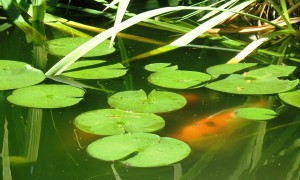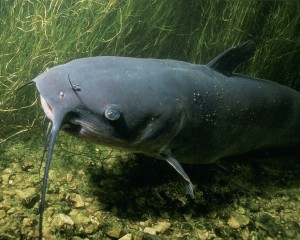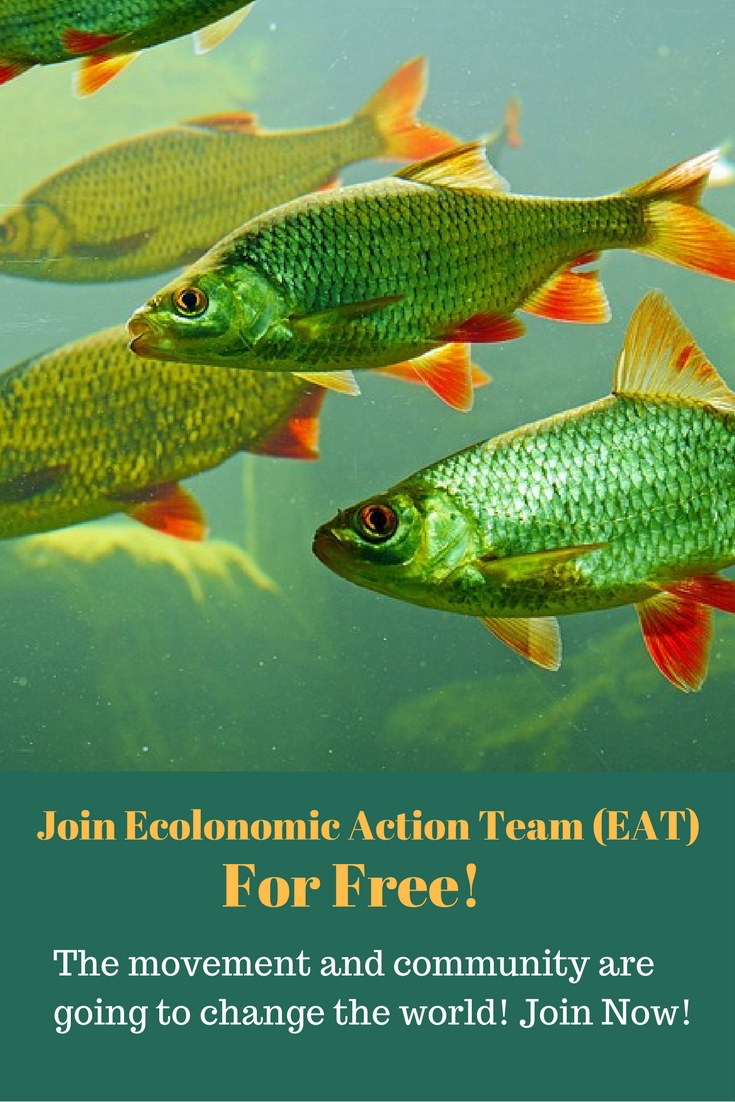Got a backyard pond? Or maybe you are thinking about getting an aquarium for your home. For outside ponds you have to consider several things before buying your juvenile fish.
Raising fish in your backyard pond or in an aquarium is an excellent idea. Having colorful fish swimming in your home pond or in your aquarium will make your house look beautiful. Fish is also an incredibly healthy food and a great source of protein. You could raise fish for your own consumption or for building a home based fish farming business for profit.
5 fish for your backyard pond or aquarium
So what fish is good for your pond or aquarium? If you have already got a backyard pond or an aquarium, you might be wondering what fish to get. Below is a list of five fish that you might consider getting for your pond. Each fish has its own unique characteristic, benefits and pros and cons.
1. Tilapia
Tilapia is the easiest type of fish to raise in your backyard pond or aquarium. They are well suited for warm weather, and do well in a temperature range of 77 to 86’F. They will eat a wide variety of food, and can be raised entirely on vegetarian food. They grow up fast, so make sure your aquarium has plenty of room for them to swim when they get bigger. They also need plenty of light, oxygen, and clean water.
2. Koi
Koi are beautiful colorful fish that do well in small ponds or in aquariums. They are highly resilient and can survive the summer heat. They do not need much attention from you, and can be grown for both, as an ornamental fish or as food. There are over a 100 different varieties of koi available in the market with many different color combinations.
3. Goldfish
Goldfish is a small member of the trout family which is a spectacular fish to keep in your aquarium or home pond. You could buy several different types of goldfish, which grow up to be about 2 to 6 inches long, depending on the type of fish you get. Goldfish are perhaps among the most popular fish raised in aquariums. They eat crustaceans, insects, and various plant matters.
4. Killifish
If you have a small pond with a small fountain and some plants, killifish could be ideal for you. These fish rapidly reproduce and become a sizable group. They eat various types of insects, larva, algae and other plant matters.
5. Catfish
Catfish are fast growing, resilient and prolific freshwater fish – fish that may vary greatly in size depending on their species and how well you feed them. They are a delicious source of protein, and raising catfish for food is relatively easy and trouble free. You need to select the right type of catfish for your pond size. What type of catfish to get for your pond would also depend on what you are planning to do with them. Feeding your catfish is easy as they will eat a variety of commercial pelleted food or natural food from your pond.
Conclusion:
Many different types of fish can be raised at home in aquariums or small ponds. They are great as food or as pets. Raising fish would add to the beauty of your existing backyard garden pond or your home aquarium.
Lastly, I would like to remind you that raising fish in your home pond or aquarium will require some maintenance and care from you. Make sure you monitor your fish health, feed them regularly and keep your water clean. Keep your water free from ammonia and waste buildup.
Get an aquarium or pond suitable for your fish size, so that they are not overcrowded, and have sufficient swimming space. Have aquatic plants growing and also ensure steady flow of oxygen and enough sunlight, and take extra care of your juvenile fish.
P.S :- Enjoy raising fish? Please leave a comment in the comment box below or click here to visit our Facebook page. For more information on aquaponic systems or raising fish at home, please give us a call at (303) 495-3705 or Click Here to book a meeting with us.
Want to start your own fish farm? We can show you how. Click Here to Get Your Free eBook to Unleash the Entrepreneur in You!
Source: WorldWide Aquaculture.
Related articles and resources:
- Start Your Own Home Based Fish Farming Business for Profit | WorldWide Aquaculture
- Common Health Questions of Eating Fish | WorldWide Aquaculture
- Sustainable Backyard Fish Farming: How to Dig A Pond & Raise Fish | WorldWide Aquaculture
- Aquaculture Fish Farming – How To Raise Koi In Your Backyard Pond | WorldWide Aquaculture
- Aquaculture – Fish Farming of Tilapia at Home | WorldWide Aquaculture
- Tips on Feeding Your Fish – Reduce Aquaculture Feed Costs | WorldWide Aquaculture
- Starting A Catfish Farming Business – Step By Step Guide | WorldWide Aquaculture
- Aquarium Fish, Tropical fish, and Goldfish for sale – AquariumFish.net
- There are other fish you can add to your pond in addition to koi




l would like to learn more.lm still new in this business
Hi Tiffany,
We certainly can help you with your aquaculture consulting needs. Here are several things we can do for you. First, we are going to make you a FREE member of our site where we teach courses and have live webinars about all kinds of aquaculture and agriculture. That site is called http://www.eatcommunity.com and you will get an email with login instructions.
Second, one of our staff will contact you and see about scheduling a brief FREE call or skype (for outside US) conversation. He will coordinate the timing for us.
Finally, on the http://www.eatcommunity.com site there is a questionnaire you should fill out to tell us a little about your aquaculture interests and needs. Please fill that out.
Areeb
Why users still make use of to read news papers
when in this technological globe the whole thing is
presented on web?
You actually make it appear so easy along with your presentation however I
in finding this matter to be really one thing that I believe I might by no means understand.
It kind of feels too complex and very huge for me. I am taking a look forward to your next post, I will attempt to
get the cling of it!
There’s certainly a great deal to know about this subject.
I love all of the points you’ve made.
I think crayfish do a great job as well. They are fun to raise https://leaffin.com/crayfish-aquaponics/
Thank you for your information. We have turned our swimming pool into a natural pond and have been keeping some gold and koi fish. They are happy together. I was just wondering if it would be healthy to add Tilapia fish in the mix. Your information is helpful. We live in sunny South Africa.
I will immediately clutch your rss fred as I can’t in finding your e-mail subscription link or e-newsletter service.
Do you havve any? Please permit me understand in order that I may just subscribe.
Thanks.